Whether you plan to further your studies or enter the job market upon graduation, a portfolio that showcases your university performance can be immensely beneficial. In this article, we speak with students of different majors to delve into their experiences in leveraging the various academic resource platforms provided by the University of Macau (UM). By promoting their learning outcomes, these students have created portfolios that even prestigious global universities found irresistible. Remember, opportunities favour the prepared. So, are you ready?
The secret to Oxford admissions
While other students were still pondering their post-graduation plans, Ashley Fang had already received offers from prestigious institutions such as Oxford University, Cambridge University, London School of Economics and Political Science, Columbia University, The University of California, Los Angeles, and New York University. Her only concern was deciding which institution to choose. Although this may come across as boasting, it is a testament to Ashley’s exceptional academic performance. She credits her success to her participation in the residential college academic tutorial (RCAT) programme on big data analysis provided by her residential college—Cheng Yu Tung College (CYTC), and the guidance she received from CYTC Associate Master Prof Gong Yingxue. Ashley says, ‘Without the programme, I would not have achieved what I have today.’
The RCAT programme on big data analysis is an academic tutoring initiative promoted by UM residential colleges. Following a ‘train the trainer’ approach, the programme aims to develop students’ abilities in big data analysis. It operates on the principle of peer-teaching, where participating students take turns teaching each other. Each week, students assume the role of lecturers, sharing their knowledge with their peers and collectively studying a specific subject area. To facilitate a smooth learning experience and address any questions, senior students serve as teaching assistants. Ashley joined the programme during her first year of study and was the among the programme’s initial participants. She took it upon herself to learn the programming language R and subsequently shared her knowledge with fellow programme participants. During this time, Prof Gong conducted a demonstration to guide the students on how to proceed. Reflecting on her experience, Ashley shares, ‘It was a very effective learning method. We were required to master the knowledge before teaching others; otherwise, it would be embarrassing.’
R is an essential programming language for statistical computing and analysis. As a sociology student from a non-science background, Ashley initially had no knowledge of data processing. However, through exchanges with her peers, she gradually became familiar with the logic of R. In her second year, she mustered the courage to approach a professor in her department and expressed her interest in participating in a research project to gain hands-on research experience. Initially, she was only responsible for data cleaning. By her third year, she began assisting in theme-based research. To date, Ashley has participated in six research projects, and she is going to give a poster presentation on one of these projects at an international conference on social stratification and mobility in Shanghai in late May..
Ashley’s progression from a novice in the RCAT programme to a senior teaching assistant has provided her with a wide range of learning experiences. She reflects, ‘At first, I primarily listened to other students explaining topics, so the learning was relatively passive. Then, as a ‘lecturer’, I had to actively acquire knowledge to share with others. As I transitioned to the role of a teaching assistant, I was expected to be well-versed in every topic. I needed to offer assistance and handle unforeseen situations at any time. Undoubtedly, teaching is the most effective means of learning.’ Now, armed with her enriched experiences, Ashley has made the decision to pursue further studies at Oxford University.
‘The ability to acquire knowledge is more important than the knowledge itself,’ says Prof Gong. In disciplines that are vast and extensive, self-learning becomes crucial. In Prof Gong’s opinion, self-learning may involve some detours, but it ultimately leads to a deeper understanding and greater retention, and this ability to learn independently will remain with us throughout our life. She emphasises, ‘In today’s era of the digital economy, the ability to analyse big data is a fundamental skill. The RCAT programme offered by the UM residential colleges provides students with an opportunity to acquire these essential skills. It exemplifies the collaborative education between residential colleges and faculties.’
Showcasing ‘communication’ skills
In late April, CommFest successfully took place at UM. It is an annual event and graduation project organised by fourth-year students of the Department of Communication in the Faculty of Social Sciences. With the theme ‘Youthful Heart, Freedom Start’, the five-day CommFest presented a wide array of programmes that centred around self-discovery and personal growth. For example, a number of well-known speakers were invited to share their inspiring stories and insights. In addition, the event featured five original short films created by students. These films, which employed neorealism as a means of expression, delved into the inner world of young people and depicted the challenges they encounter in life.
The success of this year’s CommFest can be attributed to the dedicated efforts of 38 students, who skilfully applied their theoretical knowledge to real-life scenarios. Guided by professors in the Department of Communication, these students participated in all aspects of the event, including planning, promotion, and execution. Natasha Lei was the coordinator of this year’s CommFest. Her responsibilities encompassed public relations, event programme coordination, and securing sponsorships from businesses. She shares, ‘Having been held for many years, CommFest has become a hallmark event of the department and the university. It serves as a platform for students to showcase their knowledge.’
Natasha’s journey applying public relations theory started when she reached out to a potential sponsor via a phone call. She describes the experience as a psychological battle, ‘I had to empathise the sponsor and consider their needs. This process involved using different persuasive techniques and utilising public relations skills.’ While the event was ultimately successful, the team encountered unexpected challenges during the preparatory process, leading members to activate their crisis response mechanism. Natasha shares, ‘It was a good opportunity for us to put our knowledge into practice. It not only refreshed our understanding of crisis management, but also expanded our network, which will greatly benefit our future career development.’
CommFest also marked the release of City Walk in Macau (Communicator 2024) and LIF(V)E! (UM Bridges). These two publications are the annual projects of graduating communication students, who demonstrate their understanding of and care for Macao in the magazines. Among them, City Walk in Macau presents articles that explore the city’s history and culture through interviews and on-site visits. According to Ku Weng Hin, chief editor of the publication, exploring Macao on foot is an effective method of studying and experiencing the lifestyle changes in the city. Reflecting on the process of preparing the publication, she highlights, ‘We relied on practical skills acquired outside the classroom rather than purely theoretical knowledge. I participated in the entire process, from topic selection to editing, publishing, and distribution. It has been an invaluable learning experience.’
Now in its 23rd edition, CommFest continues to serve as a platform for students to practice and demonstrate their knowledge and skills in areas such as public relations, journalism, and creative media. According to Prof Lee Tien Tsung, head of the Department of Communication, numerous graduates from the department have pursued careers across various media industries, including journalism, advertising, public relations, film and television production, and new media. Moreover, a significant number have emerged as influential leaders in their respective fields.
Seizing opportunities to present academic achievements
For postgraduate students, few things are as significant as the opportunity to present their academic achievements. Last year marked the centenary of the publication of The Scream, a short story collection by Chinese literary giant Lu Xun. In collaboration with Beijing Lu Xun Museum, UM’s Centre for Chinese History and Culture organised the Lu Xun Literature and Chinese Culture Academic Symposium. Gin Cheang, a first-year doctoral student in the Department of Chinese Language and Literature, recognised this as a valuable chance to contribute to research on Lu Xun culture and uphold the spirit of Lu Xun, while also developing her research and publication skills.
Gin conducted her research on the dissemination of Lu Xun culture in Macao by focusing on its representations in the city’s humanistic and geographical landscapes. As she travelled around Macao to gather relevant materials, she discovered that the entrances of many schools, newspaper agencies, and associations were adorned with Lu Xun’s calligraphy. She also examined literature and literary supplements in newspapers to investigate how Lu Xun’s critical approach influenced Macao writers. She shares, ‘Every academic exchange opportunity offers a ground for the collision of ideas and provides us with an opportunity to engage in thematic research that aligns with our individual interests.’
Under the supervision of Zhu Shoutong, director of the Centre for Chinese History and Culture and Distinguished Professor at the Department of Chinese Language and Literature, Gin completed an article on the representations of Lu Xun culture in Macao, and submitted it to Lu Xun Research Monthly, an influential journal published by Beijing Lu Xun Museum. Joining her in this endeavour were five other doctoral students who also submitted their papers to the journal. The exceptional quality of these six papers received positive feedback from experts, including Jiang Yixin, deputy director of the museum, and were published in the journal in February.
According to Prof Zhu, it is not common for six doctoral students’ papers to be simultaneously published in a single journal. He emphasises, ‘This achievement is a recognition of UM’s doctoral training model and the academic performance of its students.’ Currently, Gin is participating in a research project on a chronicle of Macao literature in the Department of Chinese Language and Literature. She says, ‘The university provides diverse academic platforms for postgraduate students to participate in various academic practices, which can help enhance our academic reputation.’
Unlocking future possibilities with your portfolio
Creating an impressive portfolio is all about effectively leveraging the learning opportunities available at university to realise your potential. Regardless of your major, UM offers a diverse range of platforms for you to cultivate your strengths and bolster both your hard and soft skills. By harnessing these opportunities, you can establish a sturdy foundation for your future academic pursuits and professional development.
Text: Kelvin U, UM Reporter Wang Chuyue
English translation: Bess Che
Photos: Editorial Board, with some provided by the interviewees
Source: My UM Issue 134
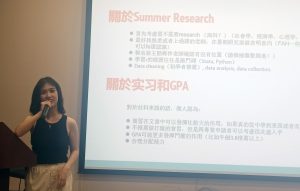
Ashley Fang shares her learning experiences in the RCAT programme on big data analysis
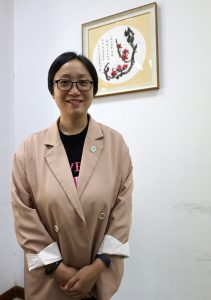
Prof Gong Yingxue
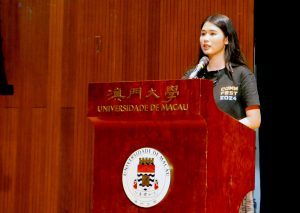
Natasha Lei gives a speech at the opening ceremony of CommFest
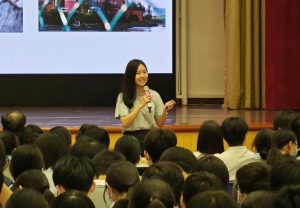
Ku Weng Hin shares her experience of producing City Walk in Macau at Escola Estrela do Mar
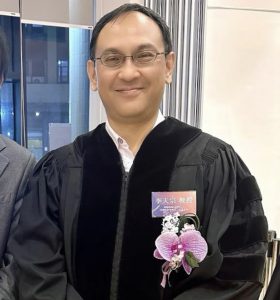
Prof Lee Tien Tsung
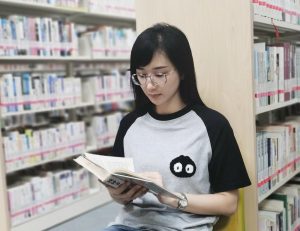
Gin Cheang
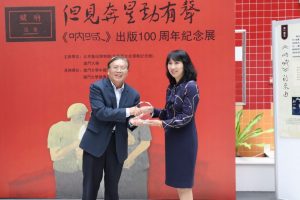
Prof Zhu Shoutong (left) presents a souvenir to Jiang Yixin at the exhibition commemorating the 100th anniversary of the publication of Lu Xun’s The Scream
